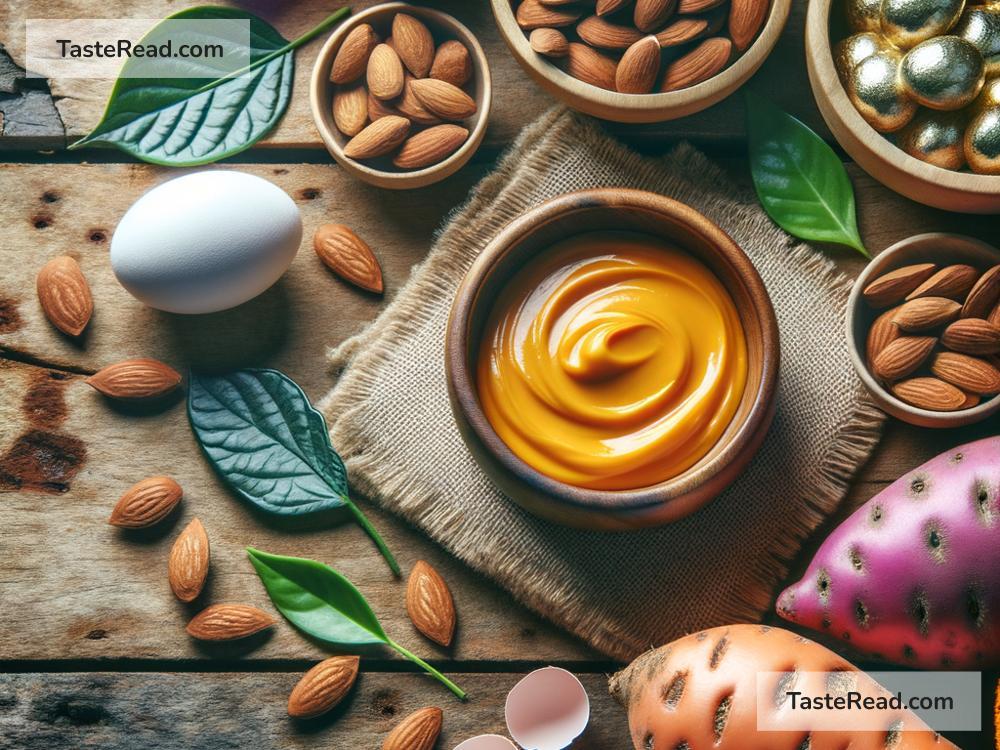The Role of Vitamin H in Skin Health
When we think about skin health, we often hear about vitamins like C, E, or A, but one important vitamin often flies under the radar: Vitamin H. If you’ve never heard of it before, don’t worry—you’re not alone! Vitamin H is more commonly known as biotin, and while its name might sound like a fancy science term, its benefits for skin, hair, and overall health are pretty straightforward.
In this blog post, we’ll explore what Vitamin H is, how it helps your skin, and the best ways to include it in your daily routine.
What Is Vitamin H (Biotin)?
Vitamin H belongs to the B-vitamin family and is also called B7. Like other B vitamins, biotin is water-soluble, meaning it dissolves in water and isn’t stored in your body for long periods. This is why you need a regular intake to maintain healthy levels.
Biotin plays a key role in converting the food you eat into energy. It helps your body break down carbohydrates, fats, and proteins into usable fuel. But beyond this fundamental function, biotin is also important for your hair, skin, and nails. Without enough biotin, these areas can suffer, leading to issues like brittle nails, thinning hair, and dry or unhealthy skin.
Why Is Vitamin H Important for Skin?
Your skin is your body’s largest organ, and it’s constantly renewing itself. Vitamins like biotin are critical for cell growth and repair, ensuring that your skin stays healthy and vibrant. Here’s how Vitamin H contributes to skin health:
1. Promotes Skin Hydration
Biotin helps your skin retain moisture. Without enough hydration, your skin can become dry, flaky, and irritated. Dry skin not only feels uncomfortable but also makes you look tired or older than you are. Biotin supports your skin’s natural barrier, ensuring it holds on to the moisture it needs to stay soft and smooth.
2. Supports Skin Repair and Growth
Our skin goes through a lot, from sun exposure to pollution and even small injuries like cuts or pimples. Biotin plays an essential role in the production of fatty acids, which are key for repairing damaged skin and encouraging new cells to grow. This keeps your skin healthy and glowing.
3. Fights Skin Inflammation
Inadequate levels of biotin can lead to skin issues like redness, rashes, and other forms of irritation. Biotin helps calm inflammation, making it especially helpful for people dealing with sensitive skin or conditions like eczema.
4. Enhances Overall Skin Tone
If your skin looks dull or uneven, biotin might be able to help. By promoting cell turnover and repair, Vitamin H gives your skin a refreshed appearance. This is why biotin is often included as an ingredient in skincare products designed to improve complexion.
What Happens If You Don’t Get Enough Biotin?
A biotin deficiency is rare because a balanced diet typically provides enough of this vitamin. However, if you aren’t getting enough biotin, it can impact your skin. Symptoms of a deficiency include:
- Dry or scaly skin
- Rashes (especially around the eyes, nose, and mouth)
- Itchy skin
- Hair thinning or hair loss
- Brittle nails
Other effects of biotin deficiency can include fatigue, muscle pain, and even mood changes. But if you’re experiencing any of these issues, don’t panic! Boosting your biotin intake can help restore healthy skin and hair over time.
How to Get Enough Vitamin H
The good news is that biotin is widely available in the foods we eat. You don’t necessarily need a supplement unless advised by a doctor. Here are some of the top foods rich in biotin:
- Eggs – Especially egg yolks
- Nuts and seeds – Like almonds, walnuts, and sunflower seeds
- Fish – Salmon, mackerel, and tuna are good options
- Legumes – Lentils, peas, and beans
- Whole grains – Such as oats or barley
- Sweet potatoes – A skin-friendly vegetable
- Leafy greens – Spinach and kale pack a nutritious punch
- Avocados – Full of healthy fats and biotin
If you prefer taking biotin as a supplement, make sure to talk to your doctor first. Supplements often contain higher doses than you actually need, and excessive biotin can sometimes interfere with lab tests or certain medications.
Can You Use Biotin Directly on Your Skin?
Some skincare products contain biotin and claim to improve skin hydration or tone. However, the jury is still out on whether applying biotin topically works as well as consuming it. Most experts agree that getting biotin through your diet or supplements is the most effective way to see benefits for your skin.
Final Thoughts
Vitamin H—better known as biotin—is a small but mighty nutrient that plays a big role in keeping your skin healthy. From promoting hydration to repairing damage and fighting inflammation, biotin ensures your skin looks and feels its best. The easiest way to get enough biotin is by eating a balanced diet rich in eggs, nuts, fish, and leafy greens.
If you’re noticing issues like dry skin or irritation, consider whether Vitamin H might be the missing piece in your skincare puzzle. While biotin alone won’t magically fix everything, incorporating it into your routine can definitely give your skin a boost.
Your skin deserves the best care possible, so why not start with something as simple and natural as Vitamin H? Your glow awaits!


